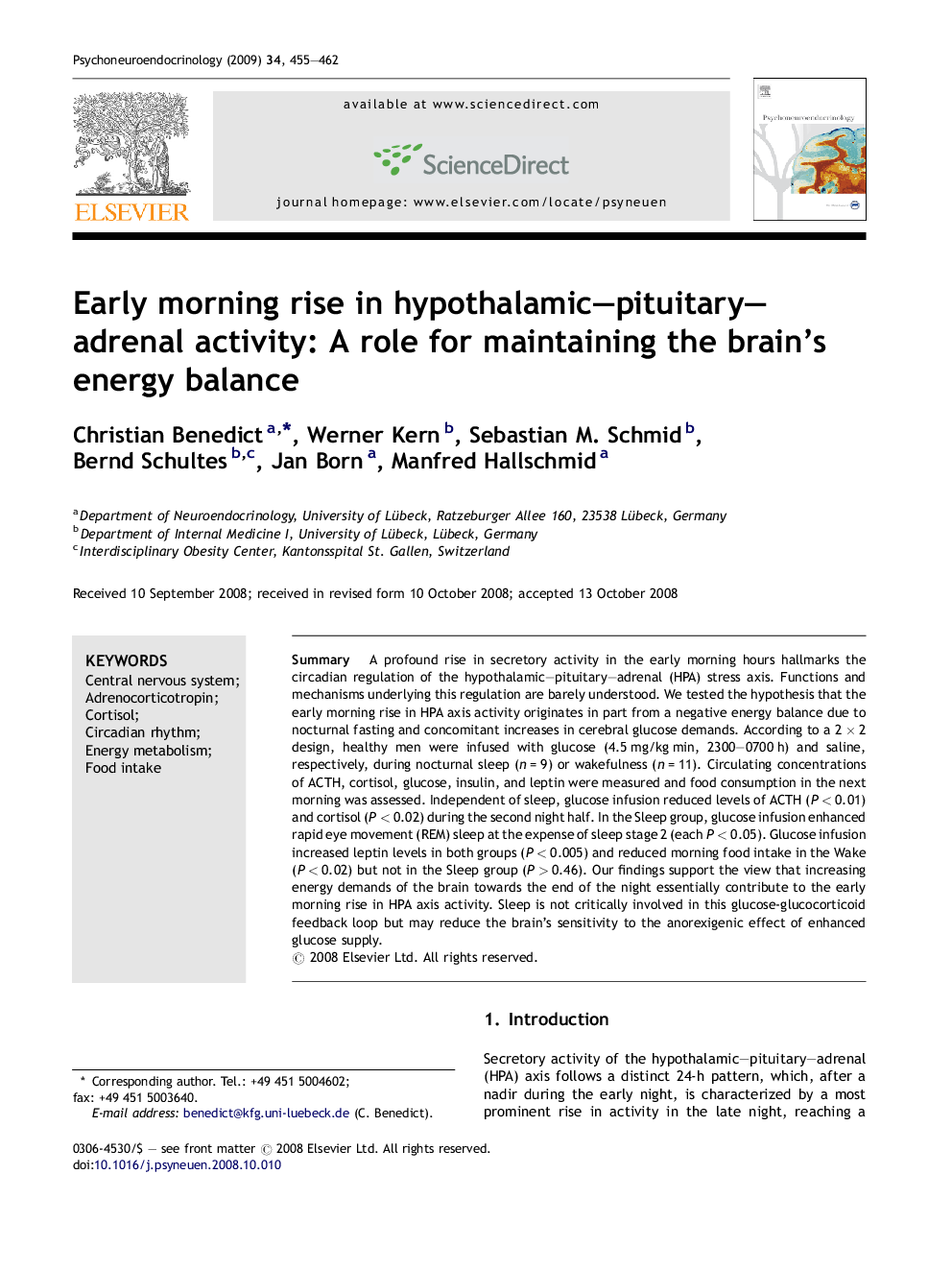| کد مقاله | کد نشریه | سال انتشار | مقاله انگلیسی | نسخه تمام متن |
|---|---|---|---|---|
| 336269 | 547099 | 2009 | 8 صفحه PDF | دانلود رایگان |

SummaryA profound rise in secretory activity in the early morning hours hallmarks the circadian regulation of the hypothalamic–pituitary–adrenal (HPA) stress axis. Functions and mechanisms underlying this regulation are barely understood. We tested the hypothesis that the early morning rise in HPA axis activity originates in part from a negative energy balance due to nocturnal fasting and concomitant increases in cerebral glucose demands. According to a 2 × 2 design, healthy men were infused with glucose (4.5 mg/kg min, 2300–0700 h) and saline, respectively, during nocturnal sleep (n = 9) or wakefulness (n = 11). Circulating concentrations of ACTH, cortisol, glucose, insulin, and leptin were measured and food consumption in the next morning was assessed. Independent of sleep, glucose infusion reduced levels of ACTH (P < 0.01) and cortisol (P < 0.02) during the second night half. In the Sleep group, glucose infusion enhanced rapid eye movement (REM) sleep at the expense of sleep stage 2 (each P < 0.05). Glucose infusion increased leptin levels in both groups (P < 0.005) and reduced morning food intake in the Wake (P < 0.02) but not in the Sleep group (P > 0.46). Our findings support the view that increasing energy demands of the brain towards the end of the night essentially contribute to the early morning rise in HPA axis activity. Sleep is not critically involved in this glucose-glucocorticoid feedback loop but may reduce the brain's sensitivity to the anorexigenic effect of enhanced glucose supply.
Journal: Psychoneuroendocrinology - Volume 34, Issue 3, April 2009, Pages 455–462